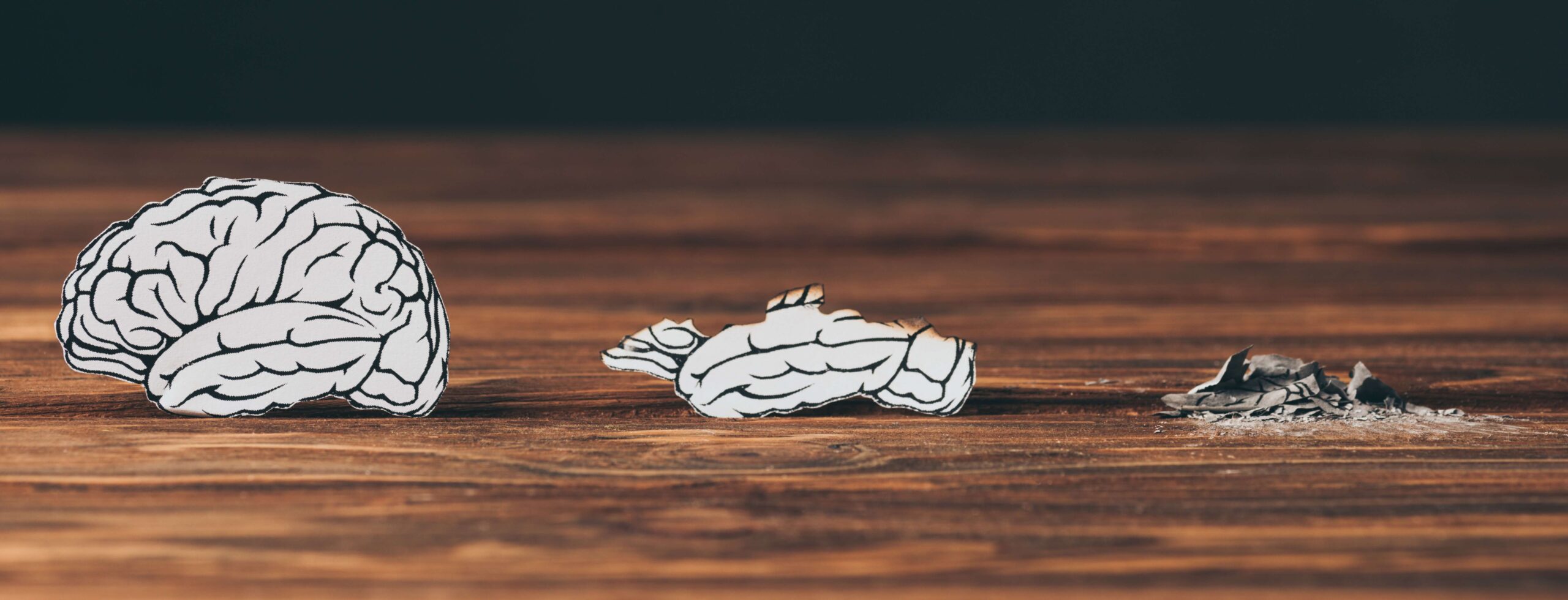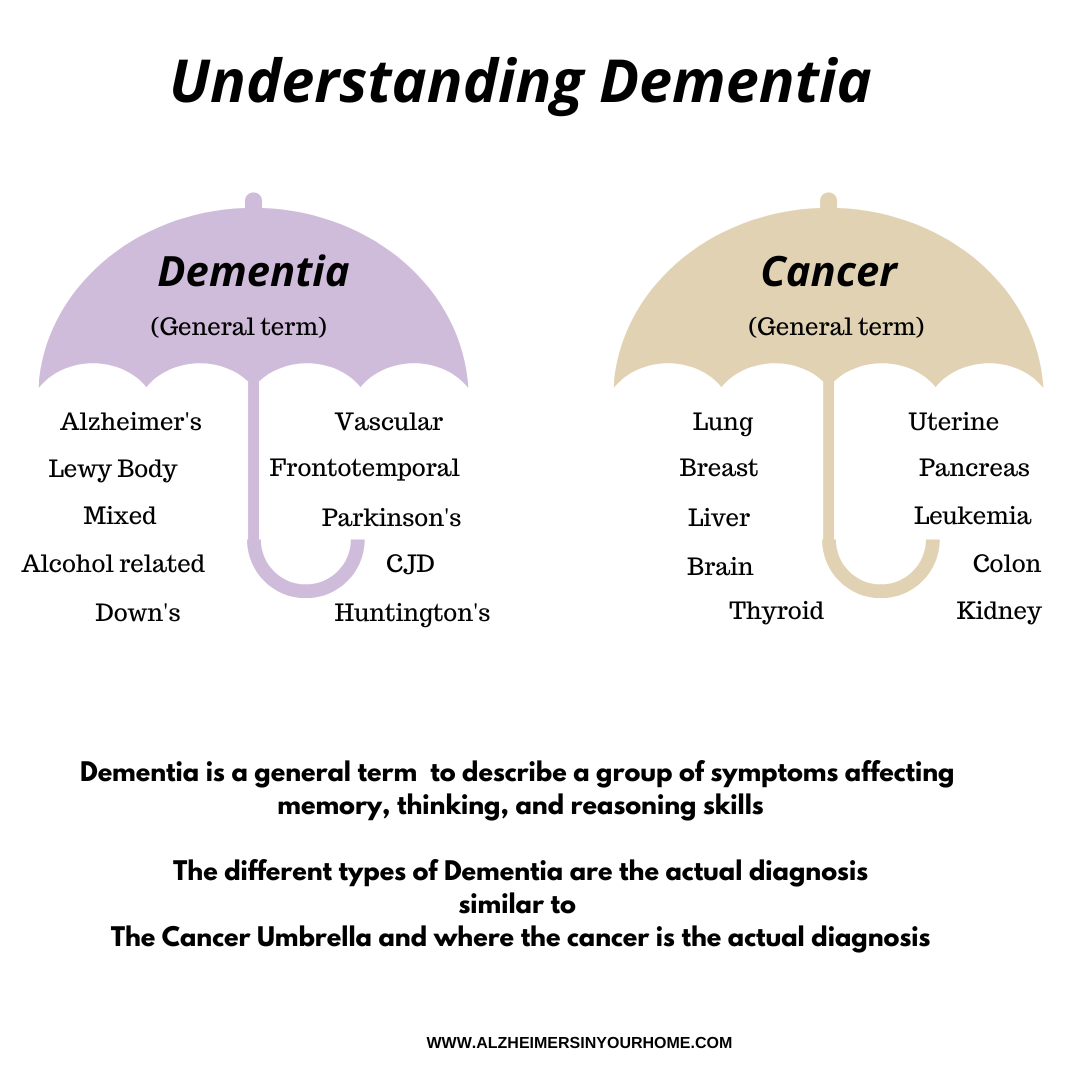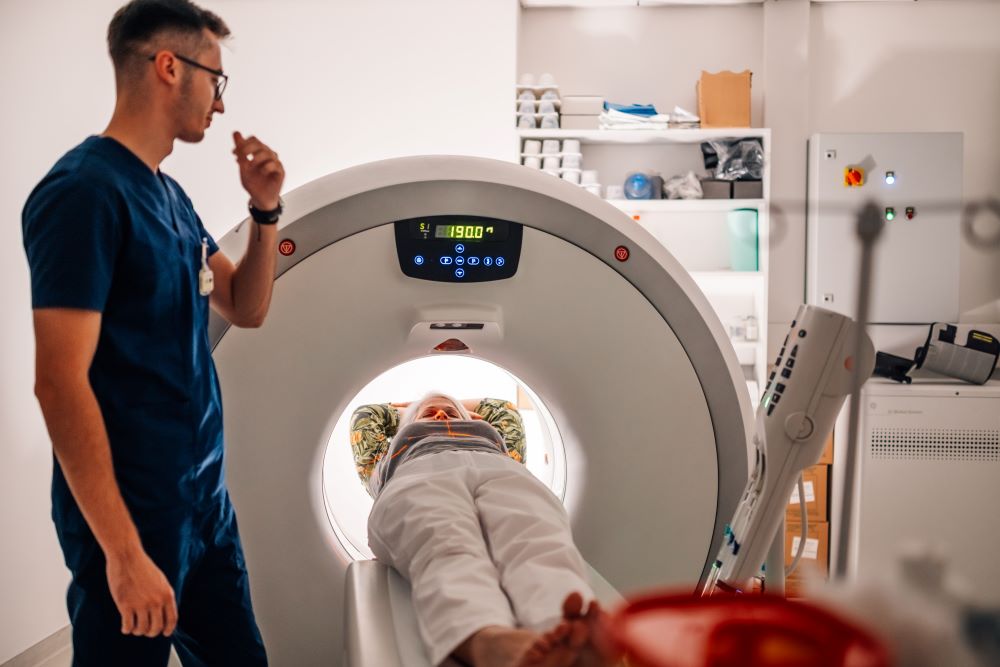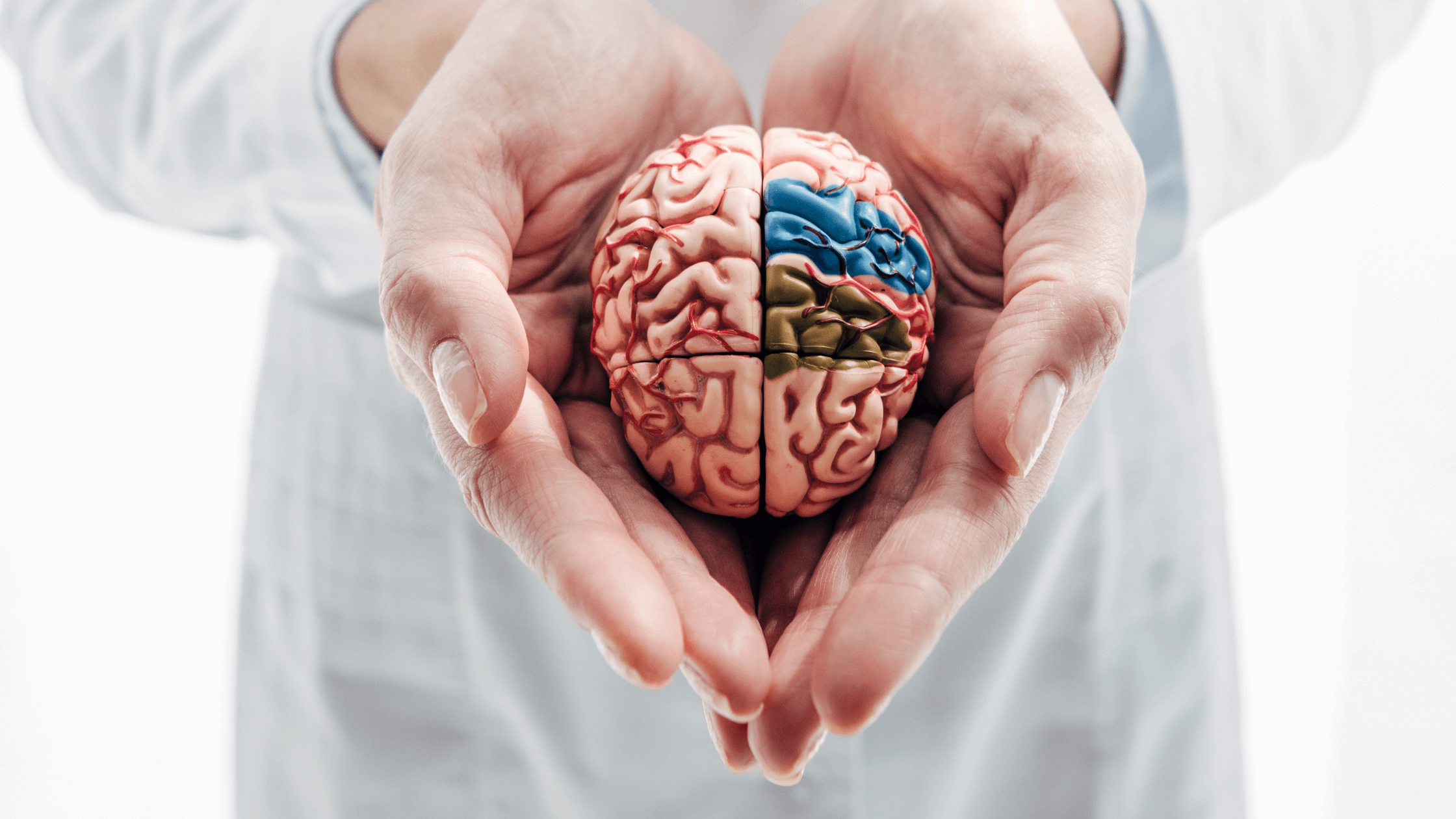When most people hear the term Dementia or Alzheimer’s, forgetfulness is the first thing that pops into their mind. But, unfortunately, that is all they know if they don’t have firsthand experience with any of the Dementia types.

What is Dementia?
Dementia is an umbrella term like the word cancer. Cancer is the general term, but it breaks down into different cancers, such as lung, kidney, and pancreas.
Dementia is the general term describing symptoms that cause loss of cognitive functioning, such as the ability to think, remember, or reason. Dementia breaks down into many different Dementia types, such as Alzheimer’s, Vascular, Lewy Body, or Frontotemporal dementia.

Understanding the Different Types of Dementia
No two people experience dementia in the same way. Each type of dementia affects the brain differently, which means that your loved one’s symptoms and responses may be unique compared to someone else’s.
Personality traits, dementia type, and specific brain areas affected all shape how dementia progresses in each person.
Many individuals over 75 with dementia experience more than one type simultaneously, known as Mixed Dementia.
For example, someone may have Alzheimer’s disease, which slowly destroys brain cells, along with vascular dementia, which blocks blood flow to the brain. This combination leads to both gradual memory changes from Alzheimer’s and sudden shifts when blood flow to specific brain areas is blocked by vascular dementia, causing those areas to die.
Mixed dementia is very common, affecting about one in ten people with dementia. It’s also the primary reason why caregivers benefit from learning about the different types of dementia.
If you assume Alzheimer’s is the only dementia involved, you might misunderstand certain behaviors as intentional or mean-spirited, when in reality, another type of dementia is influencing their actions.
the main types of dementia and how each one uniquely affects the brain
Alzheimer’s Disease
Alzheimer’s is the most common type of dementia, typically causing gradual memory loss and difficulty with language, problem-solving, and reasoning. The brain cells slowly deteriorate, especially in the areas related to memory and learning. People with Alzheimer’s often experience forgetfulness at first, which can eventually lead to confusion, difficulty recognizing loved ones, and trouble with basic tasks.
Vascular Dementia
Vascular dementia is the second most common type and occurs when blood flow to the brain is blocked or reduced, leading to brain cell death in those areas. This type is often caused by strokes or blood vessel damage. Symptoms can vary based on which parts of the brain are affected but may include difficulties with concentration, decision-making, and mood changes. Vascular dementia often leads to sudden changes in abilities, which can feel jarring to caregivers.
Lewy Body Dementia (LBD)
Lewy body dementia includes both dementia with Lewy bodies and Parkinson’s disease dementia. It is characterized by abnormal protein deposits (Lewy bodies) in brain cells, which affect movement, thinking, and behavior. People with LBD often experience visual hallucinations, sleep disturbances, balance problems, and fluctuations in alertness. Symptoms can vary widely, sometimes resembling Alzheimer’s and Parkinson’s, but with unique features like vivid hallucinations.
Frontotemporal Dementia (FTD)
Frontotemporal dementia is caused by damage to the frontal and temporal lobes of the brain, affecting personality, behavior, and language. Unlike Alzheimer’s, memory is often not affected early on, but changes in social behavior, impulsivity, or difficulty finding words can be common. People with FTD may exhibit behaviors that seem out of character, like inappropriate social interactions or emotional flatness, which can be confusing or challenging for families.
Mixed Dementia
Mixed dementia occurs when a person has more than one type of dementia at the same time, often Alzheimer’s disease combined with vascular dementia. Mixed dementia symptoms are often a blend, with gradual changes in memory along with sudden shifts in abilities or mood. This mix of symptoms can make it harder to predict what’s coming next, making learning about multiple types of dementia especially valuable for caregivers.
Parkinson’s Disease Dementia
Many people with Parkinson’s disease eventually develop dementia as part of their progression, usually following years of motor symptoms. Parkinson’s disease dementia can cause slow thinking, memory issues, and changes in mood, similar to Alzheimer’s but typically accompanied by movement difficulties like tremors and muscle stiffness.
Other Types of Dementia
Less common types include Huntington’s disease dementia, Creutzfeldt-Jakob disease, and alcohol-related dementia (Korsakoff syndrome). Each of these types affects the brain differently and may present unique symptoms such as rapid decline, difficulty with coordination, or personality changes.
Having a clearer understanding of each type can make it easier to respond appropriately to your loved one’s needs. Knowing what to expect in terms of memory, behavior, and physical challenges can help you adapt your care approach, stay flexible, and be prepared for the road ahead.
Beyond Memory Loss: The Many Effects of Dementia
Dementia is not just about forgetting. It is so much more than that. Different Dementia Types may include any of the following
Cognitive Changes
- Forgetfulness
- Losing track of time
- Getting lost
- Difficulty with numbers
- Unable to manage money
- Difficulty with planning
- Difficulty reading
- Difficulty finding words
- Forgetting the names of objects
- Mixing up names of objects
- Forgetting people
- Increasing confusion
- Unable to recognize the danger
- Apathy – doesn’t care about anything
- Perception of time loss
- Unable to problem solve
- Unable to complete multi-tasks
- Decrease in attention span
- Judgment Difficulties
- Impulsive
Psychological
- Depression
- Anxiety
- Personality changes
- Paranoia
- Anger
- Agitation
- Frustration
- Hallucinations
- Delusions
- Behaviors
- Restlessness
- Sundowning
- Withdrawn
Physical
- Sleep issues
- Weakness
- Balance issues
- Falls
- Stiff muscles
- Feet shuffling
- Difficulty walking
- Jerky movements
- Loss of Bladder
- Loss of bowel
- Swallowing difficulties
- Vision changes
- Loss of fine motor skills
- Involuntary movements
- Unable to care for self
Diagnosing Dementia: Steps and Challenges
Dementia can result from a range of diseases and conditions, each with unique signs and progression patterns. To help identify dementia, healthcare providers may use brain imaging, like CT, MRI, or PET scans, which can reveal physical changes in the brain, and blood tests to rule out other possible causes. In recent years, doctors have also begun testing spinal fluid for specific proteins that indicate certain dementia types, adding another layer of diagnostic insight.
However, diagnosing dementia often depends on more than just tests. Physicians rely heavily on family observations and their own assessments to detect changes in memory, behavior, and thinking patterns that align with different dementia types. Because most dementias progress slowly, it can take time to reach a clear diagnosis, sometimes even years. As symptoms become more noticeable, families and doctors often recognize the signs only when dementia has reached a more advanced stage, which can delay crucial early interventions.

How can family help diagnose dementia?
Families play a crucial role in helping doctors diagnose the type of dementia affecting their loved one.
By carefully tracking the changes they observe—such as shifts in mood, memory, behavior, and physical abilities—families can provide doctors with valuable information that guides a more accurate diagnosis. Detailed tracking can reveal patterns that distinguish between dementia types, like Alzheimer’s, vascular dementia, or Lewy body dementia.
With the Alzlog app, caregivers can easily document these daily changes, assess their loved one’s dementia stage, and share detailed progress reports with their medical team. This organized, ongoing record gives doctors a fuller picture, helping ensure that your loved one receives the best care tailored to their needs.
Becoming a Better Dementia Partner
First, remember that dementia is so much more than just forgetting things.
As a dementia partner, your loved one counts on you to help guide them through each stage of the disease. They trust you to protect them, especially as they become more vulnerable.
Families often think dementia is only about memory loss, but there’s so much more to it. Preparing for the changes that come with each stage can make the journey smoother.
Having a clearer understanding of each type can make it easier to respond appropriately to your loved one’s needs. Knowing what to expect in terms of memory, behavior, and physical challenges can help you adapt your care approach, stay flexible, and be prepared for the road ahead.
To support this, learn about the stages of dementia and the typical changes associated with each. You might find the Understanding Dementia Course helpful for gaining a deeper insight.
When you understand the different types of dementia, it can ease some of the fear of the unknown. Developing a good understanding of the disease helps you stay in control and prepared for what’s next.
Knowing the type of dementia your loved one has helps you respond with more compassion and patience, allowing you to become a better dementia partner.
Hi, I'm Larea, I am a Registered Nurse specializing in Dementia Care, with 30 years of experience supporting dementia patients and their families. Over the years, I have provided care in diverse settings, including homes, hospitals, nursing homes, assisted living facilities, and hospice. My passion is guiding caregivers, sharing my knowledge and experience to help them navigate the challenges of dementia care with confidence and compassion.










0 Comments